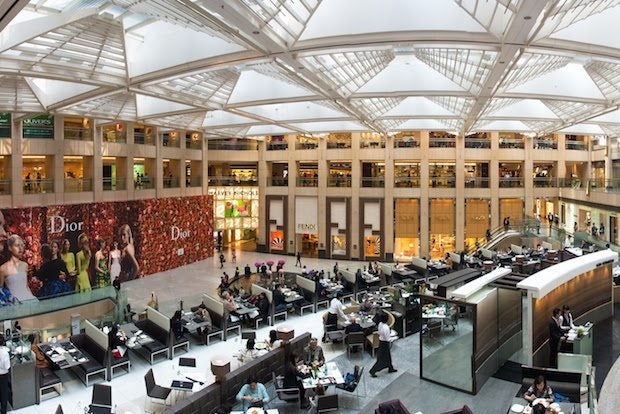
This article was published earlier in our weekly newsletter. Sign up through our “Newsletter Sign Up” box on the right.
A decline in mainland Chinese tourist-shoppers, combined with the highest retail rent prices in the world, has a growing number of luxury brands saying “no thanks” to their landlords in some of Hong Kong’s most prestigious shopping districts.
Last week, Coach announced that it will close its Hong Kong flagship, long a fixture on bustling Queens Road Central, shuttering the location two years before its lease runs out. This decision came on the heels of TAG Heuer's announcement that it would close a shop on Russell Street in Causeway Bay. If the city's sky-high rents aren't lowered, we can expect a wave of store closings to take place, as heavy-hitters like Burberry and Emperor Watch, as well as luxury group Kering, have indicated plans to renegotiate rents.
These companies have good cause for concern, as sliding sales and a decrease in mainland Chinese arrivals make current rent prices unsustainable. On Monday, Hong Kong reported its fifth straight month of declining retail sales, which fell 2.8 percent year-on-year in July. This was due in large part to an ongoing decline in mainland tourist numbers, which plummeted 9.8 percent for the month. Sales of luxury goods were hit especially hard, with a 5 percent drop in sales of jewelry and watches and a 13 percent decline for apparel.
Instead of Hong Kong, mainland Chinese luxury shoppers are heading to other nearby Asian destinations to get their duty-free shopping fix. In the beginning of the year, both Japan and South Korea saw a major retail and tourism boost from China until South Korea’s MERS crisis hit in the spring. But even as MERS caused Chinese tourist numbers to South Korea to fall, a significant number opted to head to Japan instead of Hong Kong, driving up Japan’s growth rates even further than expected. (And contributing heavily to Hermes' 20 percent jump in first-half sales in Japan this year.)